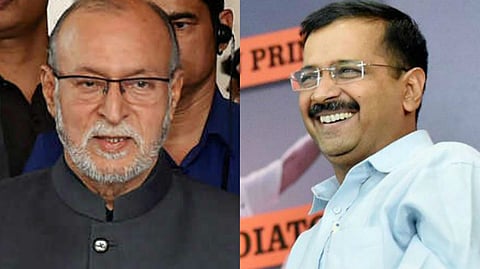

The Supreme Court, on Wednesday, said that the Lieutenant Governor (L-G) of the National Capital Territory has no independent decision-making powers under the Constitution of India, except for matters related to land, police and public order, and must act in harmony with the Council of Ministers.
This verdict is being hailed as a major victory for Delhi Chief Minister Arvind Kejriwal, as the court ruled that power in Delhi lay with the elected government.
The five-judge Bench, comprising Justices AK Sikri, AM Khanwilkar, DY Chandrachud, Ashok Bhushan and Chief Justice of India Dipak Misra, laid down the powers of the L-G as defined by Article 239 AA of the Constitution.
CJI Dipak Misra, who read out the judgement, said that the L-G cannot act independently and must work with the Council of Ministers. The state must, in turn, inform the L-G of its decisions, but it didn’t need his concurrence.
The apex court also reportedly said neither the CM and nor the LG should consider themselves bigger than the other.
This decision came after a clutch of petitions were filed by the AAP, challenging the Delhi HC which held that the L-G was the administrative head of the national capital.
Here are the main takeaways from the verdict:
A big victory for the people of Delhi...a big victory for democracy...
— Arvind Kejriwal (@ArvindKejriwal) July 4, 2018
SC: Delhi council of ministers need to "apprise" the LG of decisions. "Consultation does not mean concurrence". @ThePrintIndia
— Apurva Vishwanath (@apurva_hv) July 4, 2018
The CJI added that both the L-G and the state should serve their Constitutional obligations, as there is “no space for absolutism or anarchy in the Constitution”.